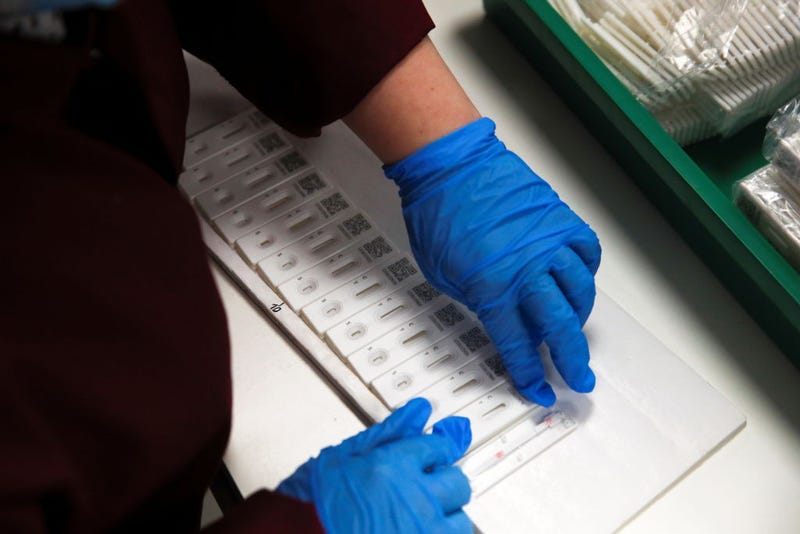
Antibody tests may be able to pick up evidence of a past COVID-19 infection, but scientists are still uncertain if these antibodies indicate protection from future infections, said a recent NPR report.
So far, the Food and Drug Administration has not recommended using antibody tests to determine COVID-19 immunity. However, with a range of tests that analyze blood samples available, some people are trying to do it anyway.
“I know a lot of people, even outside of studies, are just getting their antibody levels done,” said Dr. Ghady Haidar, a transplant infectious diseases physician at the University of Pittsburgh Medical Center, according to NPR.
Of the tests on the market, some show whether someone has been vaccinated, some simply test whether people have antibodies and others give detailed results that reflect levels of the antibodies found, said NPR.
Yet, even the detailed results can’t paint an accurate picture of your immunity status when it comes to COVID-19.
Why? One reason is the lack of standardization across commercially available tests. Another is that the tests only provide insight into one aspect of a person’s immune system.
“We have a mix of antibodies. Some of them are very good and protective. Some are not as protective,” and each person will have their own mix, explained Ali Ellebedy, an immunologist at Washington University School of Medicine in St. Louis.
Scientists have data about which antibodies are best at neutralizing the virus, but Ellebedy said existing tests are not designed to pick up on whether a person has enough of the protective antibodies, which can be different for certain virus variants.
“Antibody tests — it's really probing just one part of your immune system,” said Elitza Theel, who directs the Infectious Diseases Serology Laboratory at the Mayo Clinic.
While antibody tests can’t determine immunity to COVID-19, they do have other uses, said NPR. These include helping researchers study the prevalence of the virus across a population or tracking how antibody levels wane over time. For example, a decline in antibody levels was used to make a scientific case in favor of booster shots.
Dr. Nicole Bouvier of Mount Sinai Hospital in New York, N.Y., said it's reasonable for people to use test results to get a sense where they fall relative to others who have taken it.
“That can give you a benchmark for the immune response to natural infection, and then you can sort of gauge your vaccine response against that," said Bouvier.
Tests can also provide a numerical reading for the level of antibodies in blood that bind to specific SARS-CoV-2 proteins.
“What we're basically learning is that the higher your number is, the more likely you are to be protected,” explained Bouvier. Generally, a very high number is actually needed in order to be protected from the virus, she added.
These findings are based on large studies and may not hold true for individual cases, said NPR.
“We don't know what the optimal antibody level is that correlates with protection,” according to Haider. He said results are particularly hard to apply to immunocompromised patients.
In the future, it is possible that a blood test may eventually provide a reliable indication of COVID-19 immunity, Theel said. The science just isn’t there yet.


